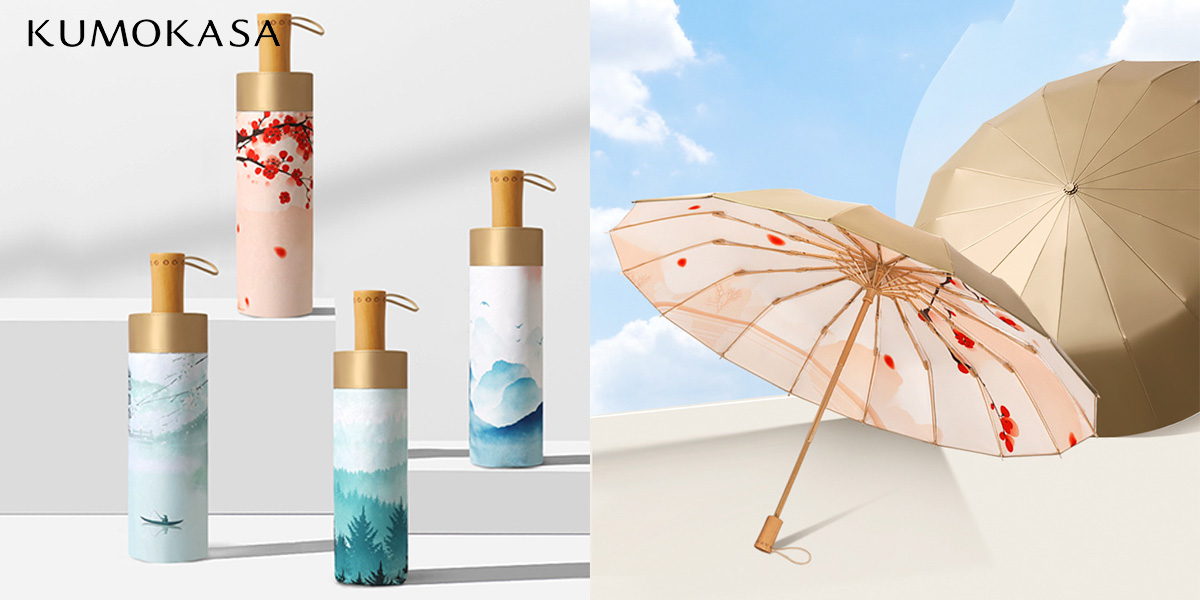When the clouds gather and the rain begins to fall, an umbrella becomes an essential accessory for many of us. However, with a plethora of options available, choosing the right umbrella can be a daunting task. Among the most popular choices are folding umbrellas and traditional umbrellas. Each type has its own set of advantages and disadvantages, making them suitable for different lifestyles and preferences. In this blog post, we will explore the key differences between folding umbrellas and traditional umbrellas, helping you determine which one is right for you.
Understanding the Basics
Before diving into the comparison, it’s important to understand what distinguishes folding umbrellas from traditional umbrellas.
Folding Umbrellas: Also known as compact or travel umbrellas, 折りたたみ傘 are designed to fold down into a smaller size, making them easy to carry in a bag or backpack. They typically feature a collapsible frame and a lightweight design, which makes them ideal for individuals on the go.
Traditional Umbrellas: These are the classic, non-collapsible umbrellas that are larger and sturdier. They often feature a straight handle and a wider canopy, providing more coverage. Traditional umbrellas are usually heavier and take up more space when not in use.
Pros and Cons of Folding Umbrellas
Advantages
- Portability: The most significant advantage of folding umbrellas is their portability. They can easily fit into a handbag, backpack, or even a coat pocket, making them convenient for commuters, travelers, and anyone who is frequently on the move.
- Lightweight Design: Folding umbrellas are typically made from lighter materials, making them easier to carry around. This is particularly beneficial for those who have to walk long distances or navigate public transportation.
- Variety of Designs: Many manufacturers produce folding umbrellas in various colors, patterns, and styles. This allows consumers to express their personal style while staying dry.
- Convenience: Most folding umbrellas come with an automatic open and close mechanism, which means you can quickly deploy or store them with one hand. This feature is especially useful when you’re juggling bags or other items.
Disadvantages
- Durability: Folding umbrellas are generally less durable than traditional umbrellas. The mechanisms that allow them to fold and unfold can be prone to breaking, especially with frequent use.
- Coverage: The canopy of a folding umbrella is often smaller than that of a traditional umbrella, which means less coverage. During heavy rain, this can leave you vulnerable to getting wet.
- Wind Resistance: Many folding umbrellas struggle in high winds. Their lightweight design and smaller size can make them more susceptible to flipping inside out or breaking.
Pros and Cons of Traditional Umbrellas
Advantages
- Sturdiness: 伝統的な傘 are typically made from more robust materials and feature a stronger frame. This makes them more resilient against strong winds and heavy rain.
- Larger Canopy: With a larger canopy, traditional umbrellas provide more coverage, keeping you and your belongings dry during a downpour.
- Longevity: Due to their durable construction, traditional umbrellas often last longer than folding umbrellas, making them a more cost-effective option in the long run.
- Stability: The weight and design of traditional umbrellas provide better stability in windy conditions, reducing the risk of them flipping inside out.
Disadvantages
- Bulky Size: Traditional umbrellas are bulkier and can be cumbersome to carry around. They often require a dedicated space in your bag or car, which can be inconvenient for those who prefer to travel light.
- Manual Operation: Most traditional umbrellas require manual opening and closing, which can be a hassle when you are trying to juggle multiple items.
- Limited Style Options: While there are stylish traditional umbrellas, the design options are often more limited compared to the myriad of folding umbrellas available.
Which One is Right for You?
The decision between a folding umbrella and a traditional umbrella ultimately depends on your lifestyle and preferences. Here are some factors to consider:
Lifestyle
- On-the-Go: If you’re a commuter or someone who travels frequently, a folding umbrella may be the better choice. Its compact size and lightweight design make it easy to carry, ensuring that you’re prepared for unexpected weather without the bulk.
- Home Use: If you primarily need an umbrella for use at home or in your car, a traditional umbrella might be more suitable. Its sturdiness and larger canopy can offer better protection during heavy rain.
Weather Conditions
- Mild Rain: For light to moderate rain, a folding umbrella is usually sufficient and more convenient. You can quickly pull it out when needed and stow it away once the sun comes out.
- Stormy Weather: If you live in an area prone to heavy rain or strong winds, investing in a traditional umbrella may be wise. Its durability and larger coverage will better protect you from the elements.
Personal Preference
- Style and Aesthetics: If you enjoy expressing your personality through your accessories, a folding umbrella offers a wide range of designs and colors.
- Simplicity: If you prefer a classic look and don’t mind a bit of extra weight, a traditional umbrella can be a timeless addition to your wardrobe.
Conclusion
In the battle of folding umbrellas versus traditional umbrellas, there is no one-size-fits-all answer. Each type has its own unique advantages and disadvantages, making them suitable for different situations and preferences. By considering your lifestyle, the typical weather conditions in your area, and your personal style, you can make an informed decision about which umbrella is right for you. Whether you choose the convenience of a folding umbrella or the durability of a traditional one, the important thing is to stay dry and stylish during those unexpected rain showers!







